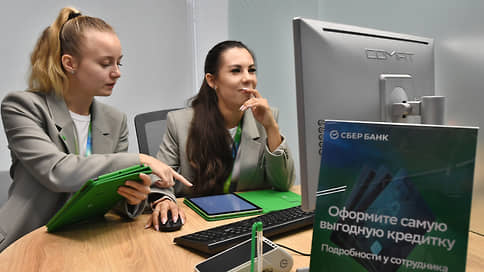Banks spoke about the course of import substitution on

The level of import substitution of foreign software at the objects of critical information infrastructure in large banks reaches 90%, experts surveyed by Kommersant believe. In medium -sized credit organizations, this figure is about 60%, while in small yet it does not exceed 50%. This may be due to the insufficient number of analogues of domestic hardware, as well as with low maturity of decisions that can function in highly loaded banks.
The Chairman of the Board of the Rosselkhozbank Boris Listov told Kommersant that the bank was completely imported at significant objects of critical information infrastructure (Zokia), spending 20.5 billion rubles on this. last year. In total, since 2021, investments “in digital transformation” amounted to more than 80 billion rubles, added Mr. Listov.
On January 1, 2025, a deadline passed, to which, by decree of Vladimir Putin, banks with state participation were supposed to switch to Russian software in the part of CII.
The Kommersant’s press service said that more than 850 thousand “IT landscape components related to 760 information systems of the bank” were transferred to domestic developments, which is 91% of “targeted information systems”. The bank added that they optimized the costs “directly on the solutions themselves based on open technologies”, and also refused to “use expensive and high -performance server equipment” and switched to “the use of domestic equipment of slightly lower performance”. According to the VTB representative, the economic effect of such actions amounted to 180 billion rubles. Until 2030.
Kommersant Kommersant said that they completely replaced the “automated systems” on Zokia as part of the import substitution program. In Gazprombank, PSB, Dom.rf, Novikombank did not respond to Kommersant’s request.
Deputy Prime Minister Dmitry Grigorenko said “Kommersant” that the government “has passed to the active implementation of domestic decisions”. “The Russian financial market is one of the leaders of digital transformation among all sectors of the economy,” added Mr. Grigorenko.
According to the IT company “Rexoft”, the total funding of import substitution in the Russian banking sector is over 0.7-1 trillion rubles, says Elena Golyaeva, the Bank and Finance Department of the Banks and Finance Department.
At the same time, according to her, the level of import substitution varies depending on the size of the bank: large organizations reached 90%of the substitution, medium -sized – about 60%, while small credit institutions do not yet exceed 50%.
The general director of Bell Integrator (part of Softline) Yuri Latin also agrees with this assessment of the level of import substitution: “The average level in the largest banks is in the range of 80% in the critically important segments of banking infrastructure, such as payment systems, cash registers and risk management, while in the rest Banks, especially in small and regional, the level is about 60%. ”
“In many ways, the task of import substitution was solved through the transition to microservice architecture,” explains Anatoly Kozlachkov, president of the Association of Russian Banks (more than 220 banks). At the same time, according to him, the import substitution of specialized software progresses extremely unevenly: “For example, software for remote maintenance and protective equipment was replaced relatively quickly. But the database management systems, on the basis of which digital banking is conducted, cannot be replaced, because, on the one hand, there are few decisions of such a class, and on the other, there is no experience of such large migrations. ”
BOThe most Russian, according to the Russian, is calculated and successfully covers the needs of small and medium -sized businesses, adds Mr. Kozlachkov: “And with decisions that are able to function qualitatively in highly loaded systems of banks that process tens of thousands of operations per second, there were problems.” Oleg Morgun calls the head of the Technology Development Management Head of the Technology Development Department of the Association Finteh (unites 49 companies), as well as insufficient number of analogues of domestic hardware.
“It can also be noted that the solutions introduced in recent years no longer meet the modern requirements for AI-infrastructure: there are not enough models and specialized equipment,” adds Ms. Golyaeva.







:format(jpeg):fill(f8f8f8,true)/s3/static.nrc.nl/images/gn4/stripped/data133624369-1d45bc.png)